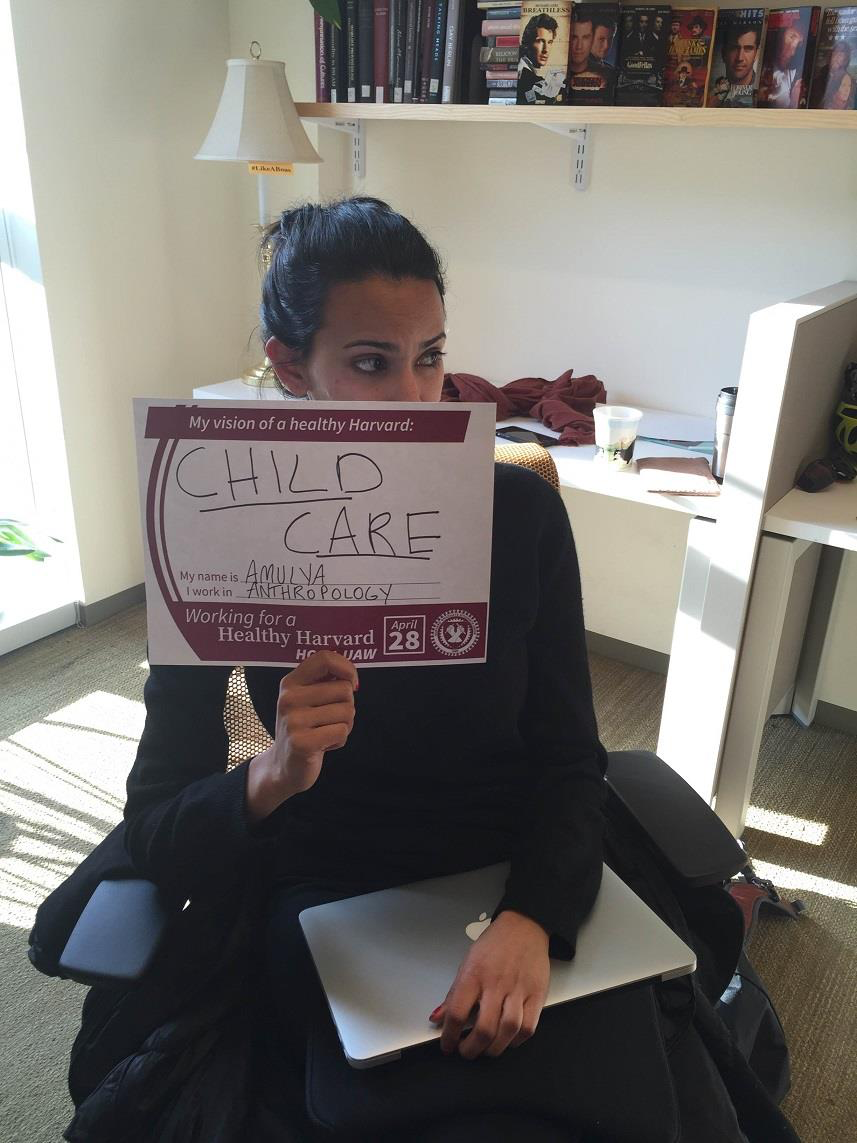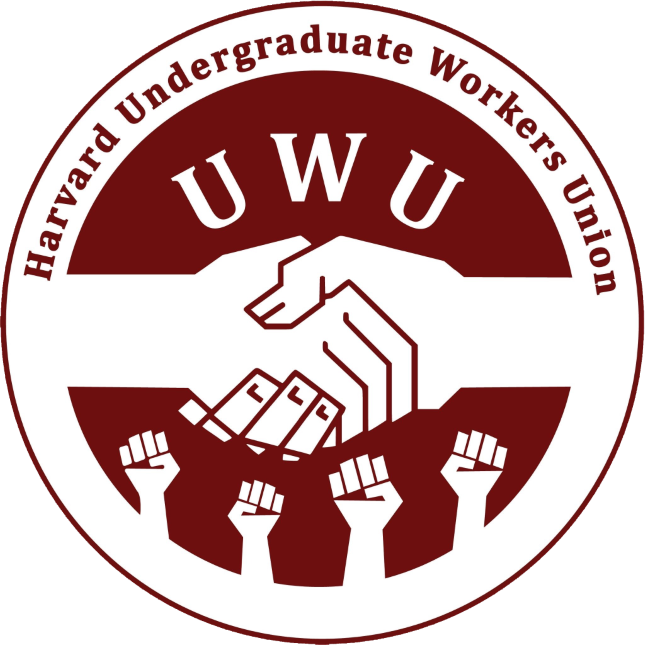
July 2021
Volume 1
Issue 10
Read previous issues
Contract extended but negotiations proceed slowly
June was a pivotal month for our second contract campaign. The Union and the University exchanged over 30 counter proposals. We reached tentative agreements on four articles which included major wins for teaching fellows struggling with cancelled courses and smaller improvements to job postings and family-friendly benefits. Across articles still being discussed, other wins include:
- Pay parity for the School of Public Health
- Creation of a cheaper dental plan for preventive care for the 2022 enrollment period
- Some dental insurance premium coverage for salaried PhDs (though the details are still being negotiated)
Fifteen articles remain on the table with several being discussed in small working groups. Unfortunately, there’s been little movement on major issues like academic retaliation protections and compensation, and virtually no movement on real recourse for power or identity-based harassment and discrimination.
In the days leading up to our anticipated contract expiration on June 30, members delivered a strike organizing commitment letter signed by over 600 student workers to the University administration. The letter made it abundantly clear that without proposals from the University that address our concerns on major issues, members will organize to authorize, and if authorized, participate in a strike if necessary . After receiving yet another inadequate proposal on compensation, members “walked out” of a virtual bargaining session. They let the administration know that they would rather spend time organizing toward a strike than listen to them attempt to justify poor proposals.
After our last bargaining session on June 24, the University offered us a two-month contract extension, which membership collectively decided to accept by a membership-wide vote (425 votes [61.5%] were in favor of accepting). Since then, negotiations have slowed. The University offered HGSU’s Bargaining Committee no bargaining sessions in July. However, work continues in the small working groups.
With the approval of a contract extension, we’re guaranteed all the protections of our first contract through August 31. This includes access to student worker lists, orientations, and our grievance procedure. This does not include funds for reimbursements; the funds in the benefits pools remain expired. This extension also supports our ongoing organizing. For example, first-year student workers will be easier to reach with contractually guaranteed access to orientation events for new student workers. While this extension provides our members some continued protections, it doesn’t change the fact that the University did not bargain through July, and many of our major concerns at the table remain unaddressed. We have to keep organizing so that we’re ready to show our power during the first in-person semester since 2020. This incoming class of student workers will play a major role in our union as we continue to organize toward a strike in the fall.
Negotiations will continue on August 5 from 1:00 – 3:00pm. We’ve also received four more additional dates in August. RSVP to attend the bargaining session here.
Get to know the new co-chairs of your Contract Enforcement and Education Committee
As the newly elected Co-Chairs, we are thrilled to be leading the Contract Education and Enforcement Committee this academic year!


Denish Jaswal is a G4 in the Philosophy Department. Her extensive experience with in-department stewardship, as well as grassroots organizing across our local, offers an approach to grievance handling and contract education that is grounded in a transparent and democratic vision for our union.
As a G3 in Biostatistics, Eric Cohn has not only taken on and won major cases for us (including one that resulted in us being able to include an entire department of student workers in our bargaining unit), but as a trained volunteer crisis counselor, he is also focused on developing ways for grievance officers and stewards to come together and practice collective care as they work to make our unit better.

A 5th year SJD candidate at Harvard Law School, Gali Racabi brings to his position years of work as a labor organizer and employment lawyer, in addition to his near-constant handling of sensitive grievances over the past year.
Lastly, Amulya Mandava is a G6 in Anthro with a strong interest in supporting her fellow workers through University harrassment and discrimination procedures, while advocating for changes to Harvard’s policies in that arena.
Together, we are committed to:
- Continuing to resolve workplace issues creatively even as our unit moves forward through changing contract negotiations and a potential upcoming strike!
- Expanding the range of members in our unit who can participate in handling grievances, by offering extended support for new grievance officers, further intensive training on how to handle harassment and discrimination cases, as well as cases involving mental health, and cultivating an environment of mutual care.
- Connecting our work in contract education and enforcement to broader organizing goals that benefit the whole unit.
You can reach us any time at [email protected] and submit a workplace issue form here.
“Why I committed to organize towards a strike”
600+ student workers at Harvard have signed a letter committing to organizing a strike, because our contract expires on the 30th and we can’t accept a contract without the protections we need. Hear directly from two of these student workers about why they signed this letter.
“I signed the strike letter and support collective action among grad student workers because it simply doesn’t make sense to me that we have to face tremendous financial anxiety, stress over abuse by supervisors, and lack of full health coverage. If Harvard actually wanted it’s grad students to flourish and produce good work, it could take care of all these things in our contract. and yet, we are forced to strike for them because Harvard refuses to spend as much on grad students as it does on, like, postage. Not all grad students have safety and support network that rich Harvard profs and administrators have. We have to support each other.” Suzanne Paszkowski, Classics
“I will not allow the university to take advantage of my love of teaching. I have taught every semester that I have been eligible to do so, but I will stop giving the university my labor if it does not show me that my work is valued.” Stephen Bourguet, Earth and Planetary Sciences
If you have not signed the strike letter yet, you can email [email protected] to get a link to the letter and add your name.
Labor links
At Harvard and around Boston:
- St Vincent Nurses Strike continues: 800 nurses at St. Vincent Hospital in Worcester remain on strike after nearly 140 days. The nurses, committed to bargaining for the common good, are demanding that owner Tenet Healthcare Corporation put patients over profits and put in place safe staffing levels. The two parties are scheduled to have negotiations this week.
- Legislators advance public employee right-to-strike bill: State legislators from Cambridge and Somerville testified on behalf of H1946, which would lift a current state-level ban on work stoppages for public employees including teachers, police, and firefighters. Community testifiers noted that this bill would provide more strength to collective bargaining, especially for professions hard-hit by the pandemic.
- Boston Newspaper Guild reports supermajority support for a Strike Authorization Vote (SAV): Boston Newspaper guild has been speaking out against “dismissive” and “disrespectful” treatment from Boston Globe management in an ongoing 2-year dispute, and now report that their internal poll shows supermajority support if their Bargaining Committee calls an SAV.
- Steelworkers in New Bedford end strike and ratify contract: Across the country, steelworkers at nine plants of Allegheny Technologies, Inc., including those at New Bedford, MA, voted to ratify a new contract and ending their strike that began on March 30, though concerns over safety remain.
- Vineyard Wind signs union labor agreement: The developers behind the Vineyard Wind project to install wind turbines off the coast of Massachusetts have signed an agreement to hire union labor, and local labor to fill jobs constructing the wind farm. The agreement also stipulates minimum percentages of workers of color and women.
- Cannabis workers in MA unionize: Cannabis cultivation workers in United Food and Commercial Workers Local 328 at Cresco Labs have agreed to their first union contract including a living wage, benefits, and pathways to promotions.
Around the country:
- FritoLay workers in Kansas on strike: Workers at the Topeka, Kansas FritoLay plant are striking for fair wage increases and an end to mandatory overtime shifts. PepsiCo, who owns FritoLay, has seen their profits surge and yet refused to put forward a compensation proposal that workers were willing to accept. As part of their strike, workers have called for a boycott of all PepsiCo products.
- Rideshare drivers strike day: Around Boston and the country, drivers and delivery workers organized a rideshare drivers strike day on July 21, including protests and mobilizations against unfair pay, arbitrary deactivations, and lack of basic benefits.
- Volvo workers’ strike (UAW Local 2069): workers’ five-week strike ended last week after a narrow vote ratifying the same tentative agreement that workers had previously voted to reject and following prior votes to reject two earlier tentative agreements.
- Date set for UAW-wide referendum on election of top UAW international officers: The independent monitor appointed to oversee the UAW-wide referendum this fall on the election of top UAW international officers has indicated this will be a mail-in ballot election, with ballots likely going out around September 22 and needing to be received—not postmarked—by November 12. HGSU membership has endorsed and is organizing in support of One Member, One Vote.
Around the world:
- Renewed demonstrations in Colombia: After suspending weeks of demonstrations that led to the withdrawal of an earlier regressive tax plan, Colombia’s National Strike Committee called for more demonstrations on July 20th in response to President Duque’s presentation of a new tax plan to Congress, among other demands.



